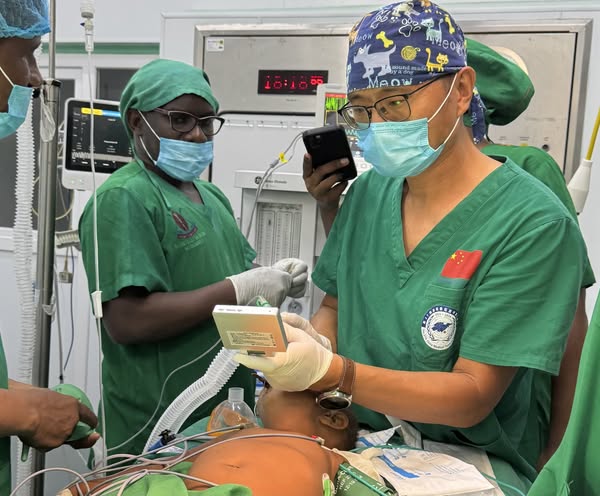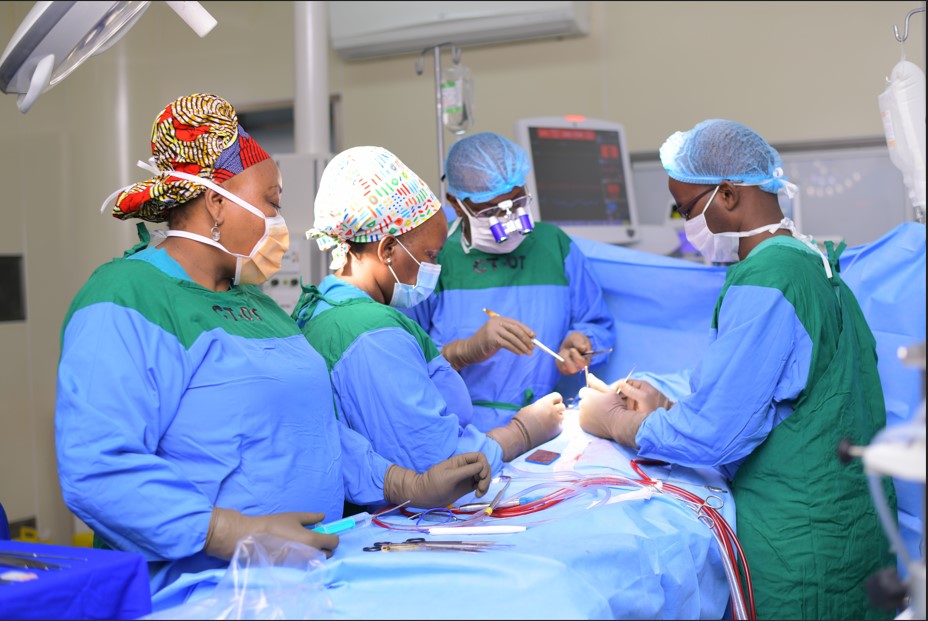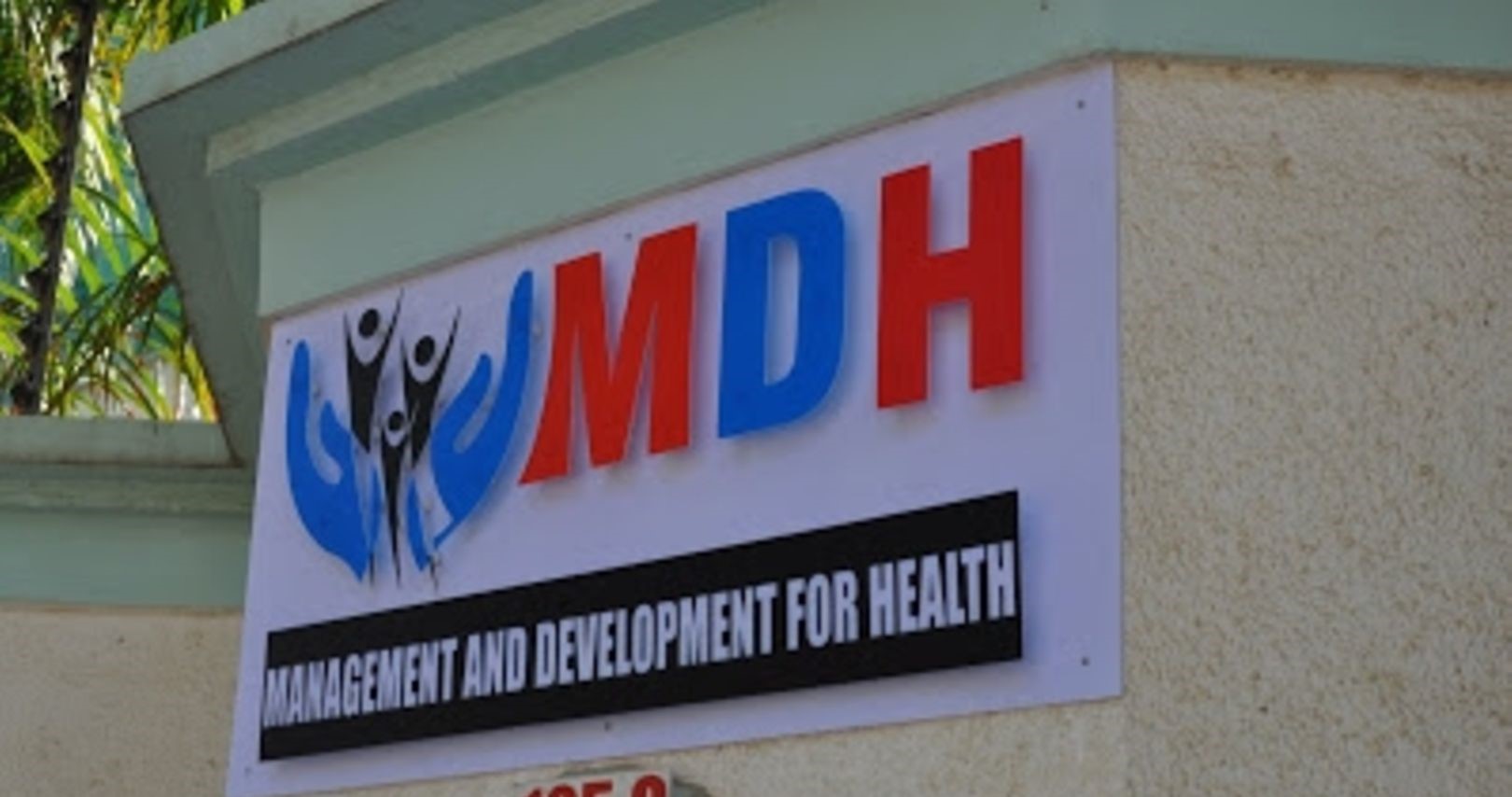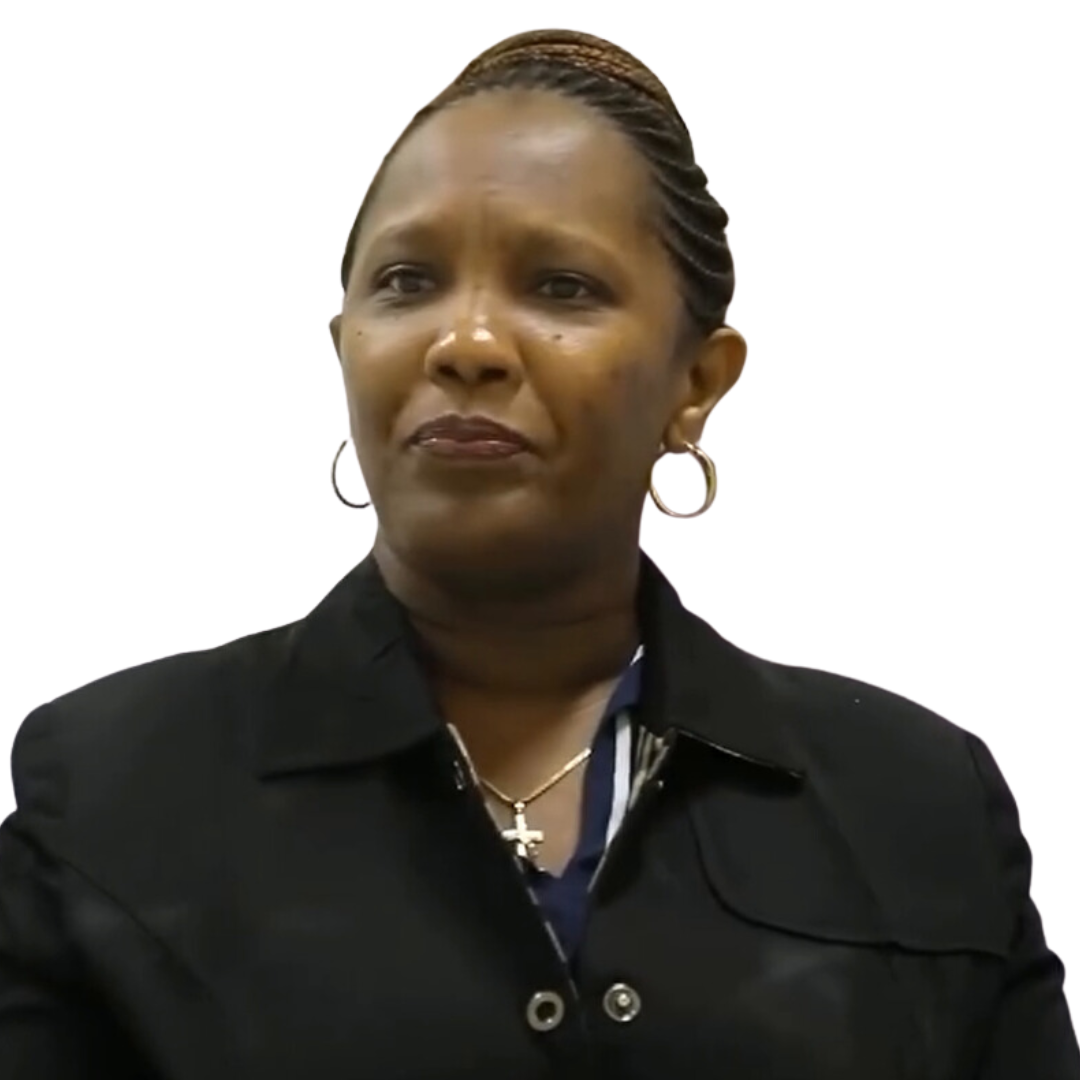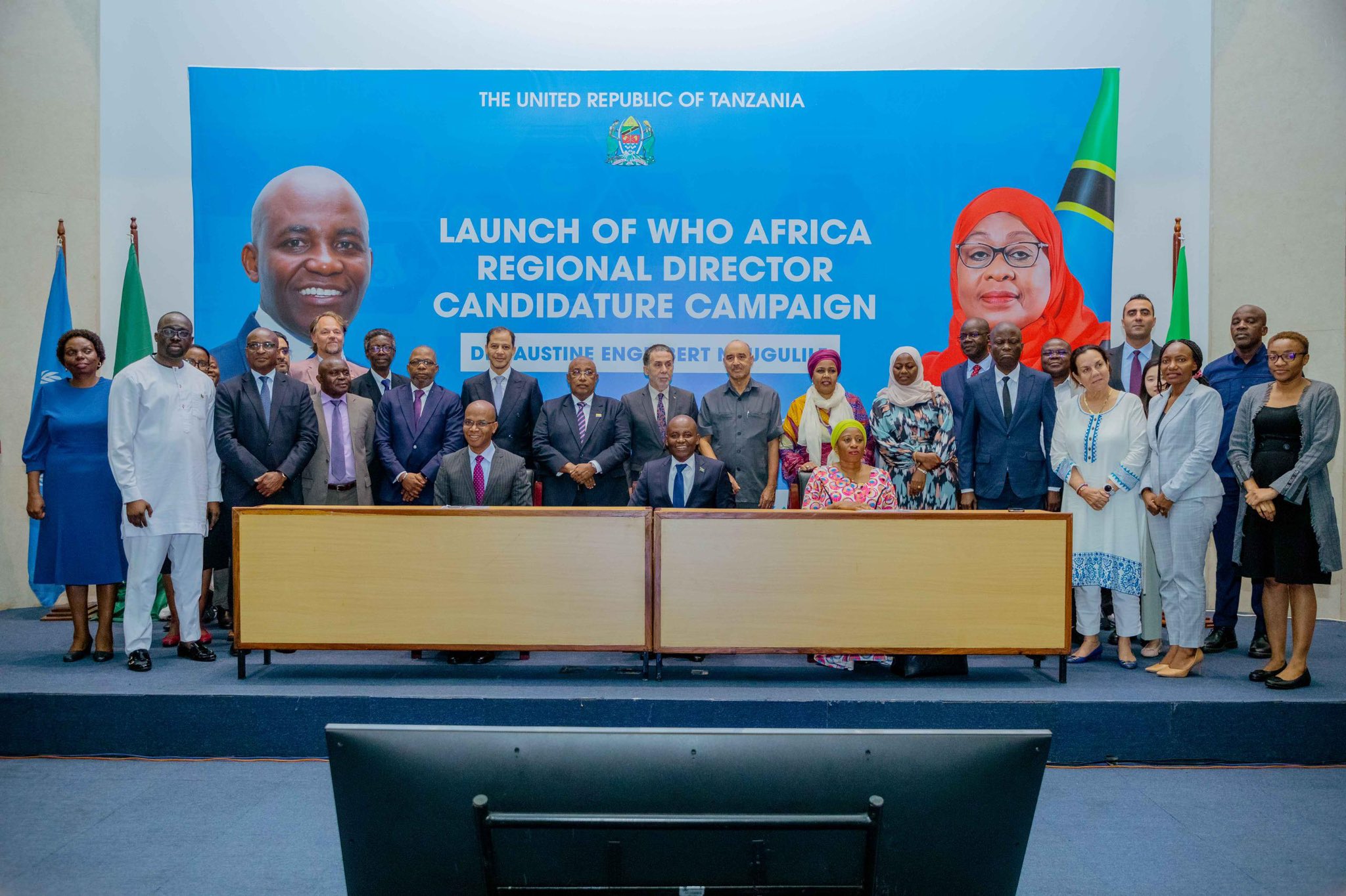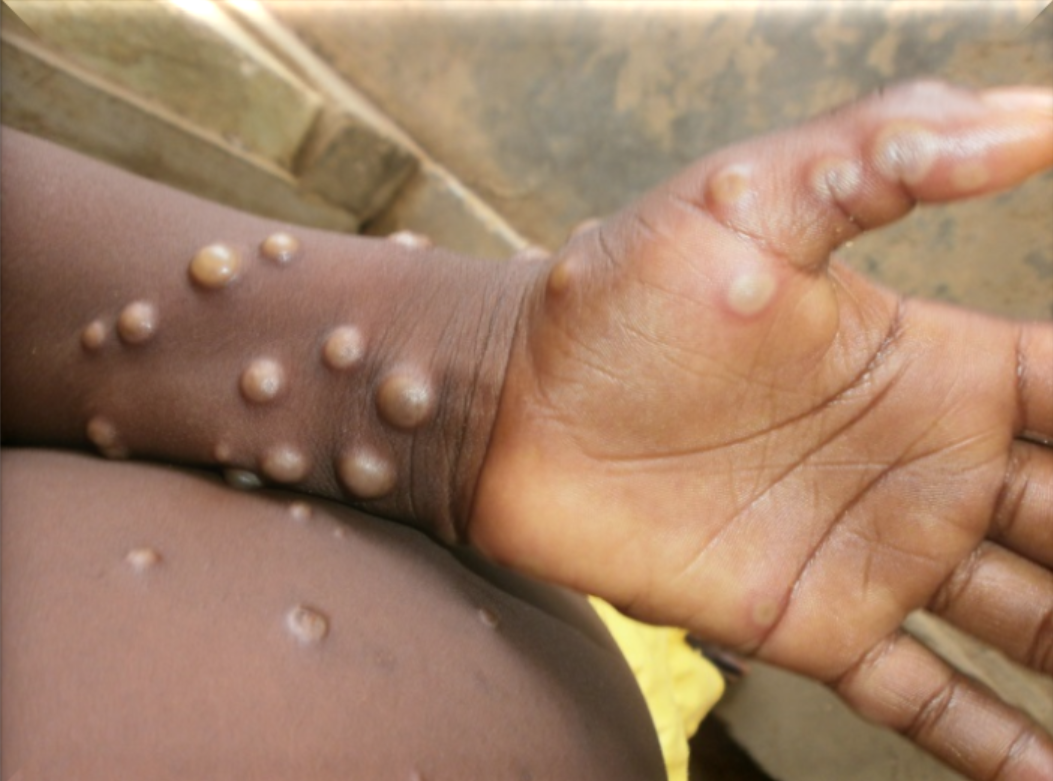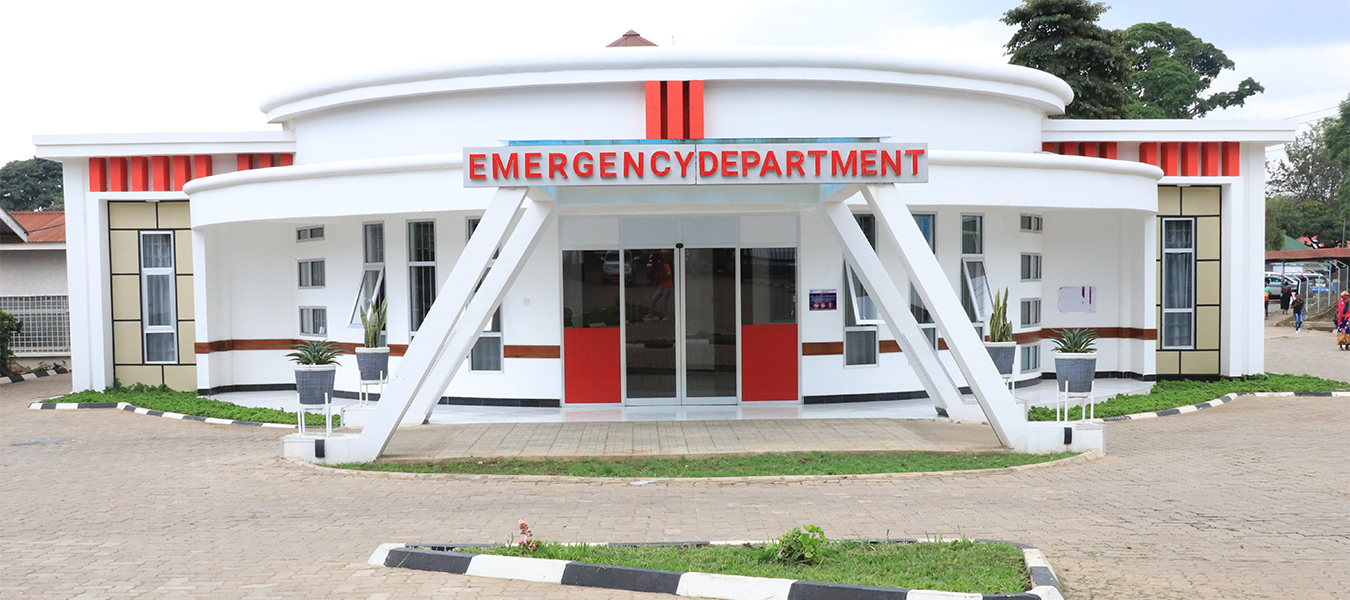Tanzania is one of the 13 top priority African countries earmarked by World Health Organization (WHO) for interventions on novel coronavirus due to the country’s direct links or high volume of travel to China; where an outbreak of the disease named COVID-19 first emerged and has continued to spread to more countries globally.
No COVID-19 case has been recorded in Tanzania but in the wake of the outbreak in other countries, health workers in the country and world over are regarded by the public as opinion leaders who can shape opinion through delivering right information so that people can remain free from the virus. So, what’s the WHO’s guidance to health workers and the public in Tanzania?
MedicoPRESS speaks to Dr Grace Saguti, the National Professional Officer- Disease Prevention and Control in Tanzania who delves into the details of what it takes to deal with a potential outbreak of COVID-19 in Tanzania. Excerpts:
MedicoPRESS: The coronavirus is spreading to more countries but there is also a problem of misinformation. What key/useful information should a health worker in Tanzania be delivering to communities about COVID-19 and why does it matter?
Dr Saguti: The message health workers should give to the public is about prevention and limiting transmission in case one has symptoms. The following points are important:
- Wash your hands frequently with soap and water or use an alcohol-based hand rub if your hands are not visibly dirty, avoid touching eyes, nose and mouth;
Why? Washing your hands with soap and water or using an alcohol-based hand rub eliminates the virus if it is on your hands.
- Maintain social distancing – maintain at least 1-meter (3 feet) distance between yourself and other people, particularly those who are coughing, sneezing and have fever.
Why? When someone who is infected with a respiratory disease, like COVID19, coughs or sneezes they project small droplets containing the virus. If you are too close, you can breathe in the virus
- Avoid touching eyes, nose and mouth
Why? Hands touch many surfaces which can be contaminated with the virus. If you touch your eyes, nose or mouth with your contaminated hands, you can transfer the virus from the surface to yourself.
- If you have fever, cough and difficulty breathing, seek medical care early. Tell your health care provider if you have travelled in an area in China where COVID19 has been reported, or if you have been in close contact with someone with who has travelled from China and has respiratory symptoms.
Why? Whenever you have fever, cough and difficulty breathing it’s important to seek medical attention promptly as this may be due to a respiratory infection or other serious condition. Respiratory symptoms with fever can have a range of causes, and depending on your personal travel history and circumstances, COVID19 could be one of them.
- If you have mild respiratory symptoms and no travel history to or within affected countries, carefully practice basic respiratory and hand hygiene and stay home until you are recovered, if possible.
MedicoPRESS: What is it that the public in Tanzania is not aware of about COVID-19 and what would the World Health Organization want to inform them?
Dr Saguti: That the world had gone through an outbreak caused by a SARS which was also caused by different type of coronavirus. The SARS experience raised the level of international alertness and preparedness to outbreaks. The world has more advanced research capabilities to learn about the virus. People all over the world should be assured that COVID19 will be overcome as it was with SARs 17 years ago. The new virus is more infectious and has longer incubation period than SARS. It is for this reason there are challenges faced in controlling and managing the disease.
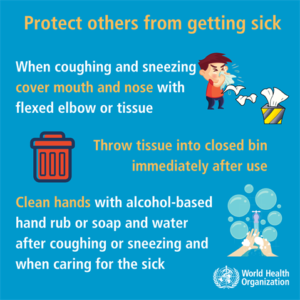
Although there are a number of COVID19 new cases reported daily there is no reason to panic. The population needs to understand basic principles for public health. Observe personal hygiene, if you are not well avoid crowded places and see a doctor immediately. Health authorities continue building capacity for screening at points of entry and building the capacity of doctors and nurses to take care of a case, in the event we find one in our country. WHO continues to play its role in supporting the government of Tanzania to build capacity on COVID19 preparedness.
MedicoPRESS: But health workers carry a great risk of being infected or infecting others, given their role. We know there no detected case in Tanzania, but what should a health worker do to protect himself and others in case of an outbreak of COVID19?
Dr Saguti: This is a new virus WHO is continuing to investigate in order to know more about its transmission. However, based on the current available evidence, and experience with other coronaviruses, WHO recommends the following measures to prevent transmission of COVID19 in health facilities and protect health workers.As with most respiratory diseases, standard hand and respiratory measures apply:
- Clean hands with soap and water or alcohol-based hand rub;
- Cover nose and mouth when coughing and sneezing with tissue or flexed elbow;
- Avoid close contact with anyone with cold or flu-like symptoms.
Additionally, health workers should wear a medical mask when entering a room where patients suspected or confirmed of being sick with COVID19 are admitted and in any situation of care provided to a suspected or confirmed case.Aerosol-generating procedures used during certain medical interventions in hospital settings require airborne precautions—that is wearing an appropriate mask.When caring for suspected patients with COVID19 health workers should focus on early recognition, immediate isolation, and implementation of appropriate IPC (infection, prevention and control) measures and provision of optimized supportive care.For treatment of severe cases, we recommend optimal supportive care therapy, including oxygen therapy (if low oxygen saturation), mechanical ventilation (if respiratory failure) and resuscitation for sepsis (if present). Compassionate use of therapeutics cannot conclude efficacy or safety results. The results from the ongoing clinical trial in China to will assist in understanding more about the disease
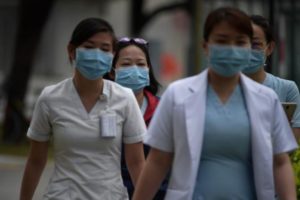
Healthcare workers at Tan Tock Seng Hospital, on Jan 30, 2020.ST PHOTO: KUA CHEE SIONG
WHO is has undertaken the following;
- Convening regular meetings with clinical experts who are treating patients infected with the COVID19 around the globe, to better understand clinical presentation and treatment interventions.
- Published interim clinical care guidance for hospitalized patients and for mildly ill patients at home and developed a standardized clinical case record form (CRF) that will soon be available on the WHO website. Updated the Disease Commodity Package that includes an essential list of biomedical equipment, medicines and supplies necessary to care for patients with COVID19.
There are no specific treatments for COVID19 and treatment is based on clinical presentation. Therapeutics are under investigation, in the form of observational and clinical trials for MERS-CoV patients, which WHO is helping to coordinate with a range of partners and leading the systematic approach to evaluate potential therapeutics and develop master clinical protocols that are necessary to accelerate this work globally.
See the Q&A on infection prevention and control for health care workers caring for patients with suspected or confirmed COVID19: https://www.who.int/news-room/q-a-detail/q-a-on-infection-prevention-and-control-for-health-care-workers-caring-for-patients-with-suspected-or-confirmed-COVID19
MedicoPRESS: Away from the self-help tips now. How is the WHO working to empower Tanzania in terms of boosting surveillance mechanisms and preparedness against a possible outbreak of COVID19?
Dr Saguti: WHO globally is working 24/7 with networks of scientists, clinicians, disease trackers, governments, supply chain experts and partners from the public and private sector to coordinate the COVID19 response, in various technical fields, including:
- Supplies: increasing vulnerable countries’ clinical management capacity with provision of case management starting kits that to manage up to 100 cases. The supplies include: masks, examination gloves, respirators, isolation gowns and other equipment to protect health workers in 24 countries diagnosing and treating patients that might be sick with COVID19; 70 laboratories globally have been enabled to perform diagnostic tests;
- WHO will also utilize the Shipping Fund Programme established by the Global Influenza Surveillance and Response System as a mechanism to send clinical samples from patients meeting the case definition of suspected COVID19 infection to international referral laboratories. Should extra capacity be needed in Tanzania, WHO is prepared to bring the needful supplies to the country immediately.
- Vaccines: WHO is working with networks of experts to accelerate research on possible treatments and vaccines for this virus, including clinical trials as soon as possible. Tanzania is informed about these developments.
- Clinical management: WHO conducts regular briefings with clinical experts currently treating patients with COVID19 acute respiratory disease to share case information and standardize data collection;
- Training: developing and publishing real-time knowledge through online courses on how to detect, prevent, respond to and control the new coronavirus COVID19 on org. WHO in Tanzania is also working with the government in the following areas:
- Providing advice (which we are continuously updating, as we learn more):
- WHO has provided advice to Tanzania on how to identify people sick with the virus, how to care for them, and how to prevent spread. who.int/health-topics/coronavirus
- WHO has issued advice for individuals on how to protect themselves and others, including on the safe home care for patients with suspected COVID19 infection. The advice includes protecting others from coughs and sneezes, hand cleaning, food safety and best practices at markets. who.int/health-topics/coronavirus
- WHO has issued advice on travel and for international traffic in relation to the outbreak of the novel coronavirus COVID19. who.int/ith/COVID19_advice_for_international_traffic
- Keeping health authorities and the public informed:
- WHO has been in regular and direct contact with health authorities in the country since the outbreak began in China. WHO is informing the country about the situation and providing support as requested.
- WHO is informing the public through daily situation reports and dashboards displaying real-time data:
- WHO Health Emergency dashboard
- WHO COVID19 alerts in African Region
MedicoPRESS: WHO-Africa has earmarked Tanzania as one of the priority countries for interventions against the COVID19. What are the factors that made WHO classify Tanzania as a priority country for response/ preparedness against the COVID19?
Dr Saguti: WHO recognizes that COVID19 poses a high risk to public health due to the many links between China, Africa, and other Asian countries. WHO has prioritized 13 African countries in COVID19 response. These countries have been prioritized so that in collaboration with WHO they increase their preparedness level.
![]()
The criteria for prioritizing them is the strength of their ties with China, either due to direct transport links or a high volume of travel there. Apart from Tanzania other priority countries are Algeria, Angola, Cote d’Ivoire, the DRC, the Republic of Congo, Ethiopia, Ghana, Kenya, Mauritius, Nigeria, South Africa, Uganda and Zambia

